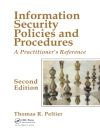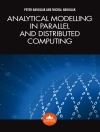As a privacy-preserving and illumination-robust manner, Wi Fi signal-based user authentication has become a new direction for ubiquitous user authentication to protect user privacy and security. It gradually turns into an important option for addressing the security concern of Io T environment.
However, due to the limited sensing capability of Wi Fi signals and wide application scenarios, Wi Fi signal-based user authentication suffers from practical issues of diversified behaviors and complex scenarios.
Therefore, it is necessary to address the issues and build integrated systems for user authentication using Wi Fi signals. In this book, the development and progress of Wi Fi signal-based user authentication systems in extensive scenarios are presented, which provides a new direction and solution for ubiquitous security and privacy protection. This book gives strong motivation of leveraging Wi Fi signals to sense human activities for user authentication, and presents the keyissues of Wi Fi-based user authentication in diversified behaviors and complex scenarios. This book provides the approaches for digging Wi Fi signals to sense human activities and extract features, realizing user authentication under fine-grained finger gestures, undefined body gestures, and multi-user scenarios. State-of-the-art researches and future directions involved with Wi Fi signal-based user authentication are presented and discussed as well. This book will benefit researchers and practitioners in the related field.
Tabella dei contenuti
Chapter 1.Overview.- Chapter 2. Finger Gesture-based Continuous User Authentication.- Chapter 3. Gesture-Independent User Authentication Using Wi Fi.- Chapter 4. Multi-User Authentication Using Wi Fi.- Chapter 5. State-of-Art Researches.- Chapter 6. Summary.
Circa l’autore
Jiadi Yu is currently an Associate Professor in Department of Computer Science and Engineering, Shanghai Jiao Tong University. Prof. Yu is an active and accomplished researcher in the field of Mobile Computing and Sensing, Cyber Security and Privacy, and Internet of Things (Io T) . He has authored the book “Sensing Vehicle Conditions for Detecting Driving Behaviors” (Springer, 2018), and published more than 100 refereed paper, which have been cited over 2500 times in Google Scholar. As conference organization, Prof. Yu was Publicity Co-Chair of IEEE Dy SPAN 2019 and ACM Wi Sec 2019. As Technical Program Committees, he was TPC Member of IEEE INFOCOM (2016-2022), AAAI 2022, IEEE ICDCS 2022, IEEE ICPADS (2014, 2019, 2020), etc. He also was peer referee for IEEE Transactions on Mobile Computing (TMC), IEEE Transactions on Parallel and Distributed Systems (TPDS), IEEE Transactions on Information Forensics and Security (TIFS), IEEE/ACM Transactions on Networking (To N), etc.
Hao Kongis currently an assistant professor in School of Computer Engineering and Science, Shanghai University. He received his Ph D from Shanghai Jiao Tong University under the supervision of Prof. Jiadi Yu. His research interests include mobile sensing and computing, and Io T.
Linghe Kong is currently a Professor with the Department of Computer Science and Engineering, Shanghai Jiao Tong University. He is the leader of the Intelligent Network and Trusted Computing Laboratory. His research interests include wireless networks, big data, mobile computing, and the Internet of Things.












